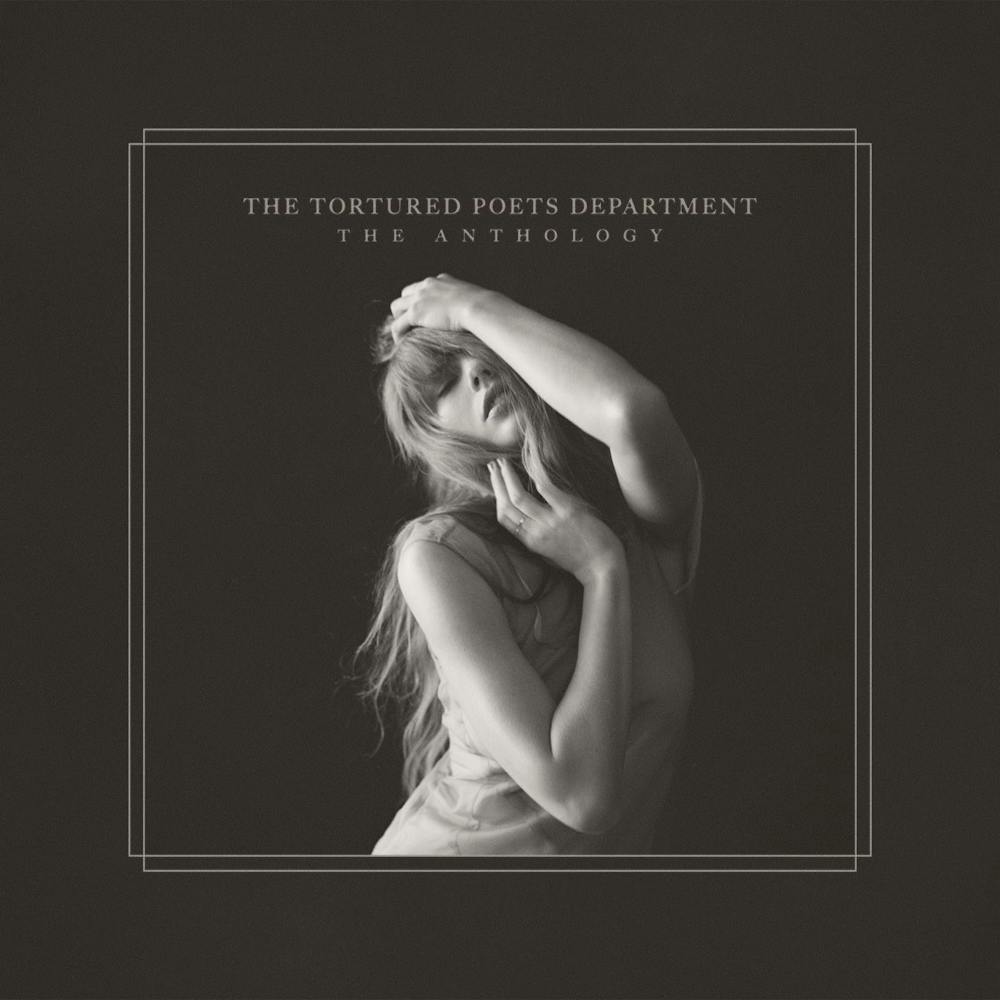By Lake DiStefano
Staff Writer
In our modern age, confessional songwriting is seen by many as the highest standard of musicianship. Focus-grouped pop hits ring hollow to many, and the authenticity of autobiographical songwriting seems to have risen in favor due to this.
It can be argued that art is inherently self-centered, and yet to make it in the music industry, one must be widely appealing. Your emotional declarations must be deemed authentic for an audience to buy into your personal narrative. Your life is a product to be bought and sold.
So how does a creative reckon with this capitalistic reality, while still trying to retain their ability to create art that resonates? What happens when the artist becomes aware of what part of them sells? These are the questions that Taylor Swift grapples with throughout the 15 extra songs on her surprise double album “The Anthology.”
As the title suggests, “The Anthology” is a series of scattered musings and ruminations on different aspects of Swift’s life and career, obscured through either a fictional or metaphorical lens.
Musically speaking, “The Anthology” sets a starkly different tone from its very first track, “The Black Dog.” The track begins with a soft piano, with booming synths only highlighting very key lyrics throughout the song.
“The Black Dog” exhibits a style of writing in which one minor detail is expanded out to expose a much larger feeling. In this case, it’s the experience of tracking an ex’s location, and in Swift’s case, watching as they walk into the bar that the song is named after.
Swift continues to lament her lost lover, before surrendering that longing to the rage most break-ups inevitably lead to. The narrative is classic, but the execution is fresh – especially in the simplicity with which Swift writes this tale.
It’s almost cocky in its self-assuredness. It carries itself knowing full well the investment listeners will already have in its misery — even going so far as to boldly name drop a very real bar in London.
The front-half of this second album is, admittedly, very strong.
“Chloe or Sam or Sophia or Marcus” is another stunner that uses soft piano and strings to depict the fatalistic narrative of two lovers who never got closure, and are forced to watch each other move on with other people. The song plays with time in a really interesting way, asking the question if the version of Swift this person first met is more interesting than the version they are just coming around back to now.
“The Albatross” plays with a gorgeous acoustic guitar to aid its mythical narrative. In this song, Swift reflects upon her reputation of being the perpetually heartbroken girl, through a myth of a fiction “Albatross,” who both saves and destroys men who seek her out.
This is where the problems start, however. While all the songs on “The Anthology” are interesting in either lyrics or sound, only a few truly excel in all aspects of being a good song.
For example, “How Did It End?” is a compelling meta-commentary on the inevitable media frenzy which surrounds the demise of her relationships, and how she almost doesn’t want to leave a relationship in fear of it. The piano and haunting vocals are subtle, yet compelling enough to grip the listener.
On the other hand, take a track like “The Prophecy,” in which Swift is reflecting upon this same doomed fate her romances find themselves in, by referring to it as this unchanging prophecy. The track explores how her relationships suffer simply because Swift is almost a mythical figure in our culture, who is known for reporting on her failed loves.
Where the track fails, however, is in the sound. The track is almost too pared down to be engaging. It is poetry in the sense that the melody is almost embarrassingly tacked on. It is unable to maintain the form of a song, by being too caught up in its poetic aspirations. It also suffers from simply being a line of thought that is hammered throughout most of these tracks.
It is in my opinion that the fiction is what saves most of these songs from narcissism. After all, who wants to hear the plights of a now billionaire? How else is she to retain that crucial empathy needed to resonate with her work?
Were the 15 extra songs warranted? The answer depends on your position on her. While there are a few highlights here, the production slowly meshes into a giant mass of ballads towards the end of the tracklist.
The issue also seems to be that most of these tracks demand that the listener have empathy for Swift as a person and cultural figure. The context of herself almost smothers some of these tracks, making it impossible to relate them to anything except the struggles of being the biggest pop star on the planet.
It’s more Taylor Swift music. If you’re a fan you’ll enjoy them, but in terms of artistic excellence? There is certainly a case to be made here, about not putting a song on a project just because you can, but because you should.







